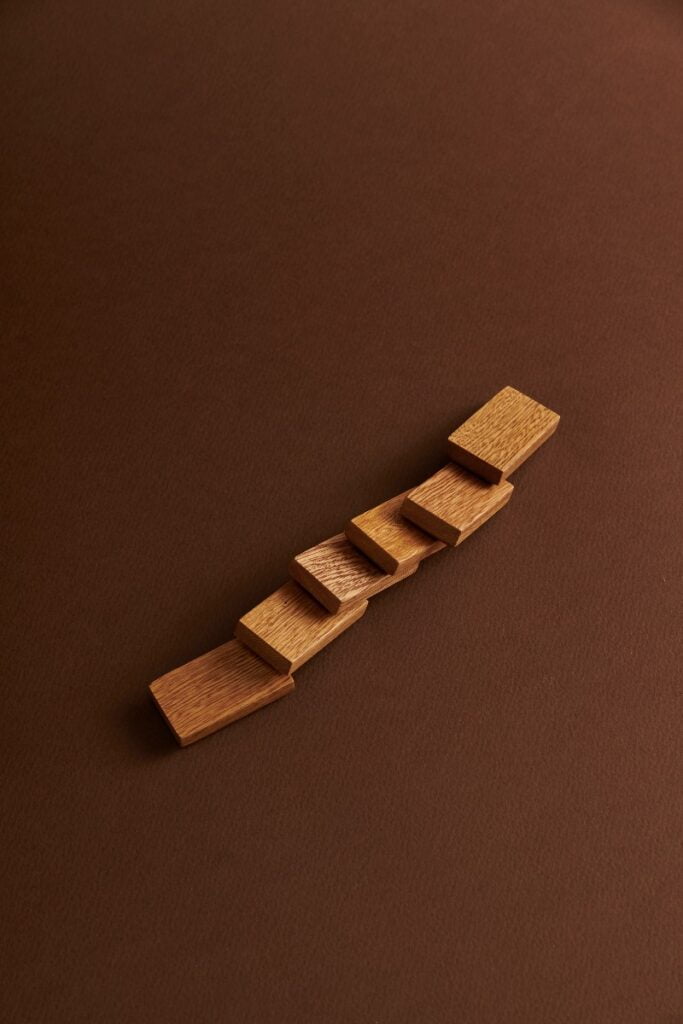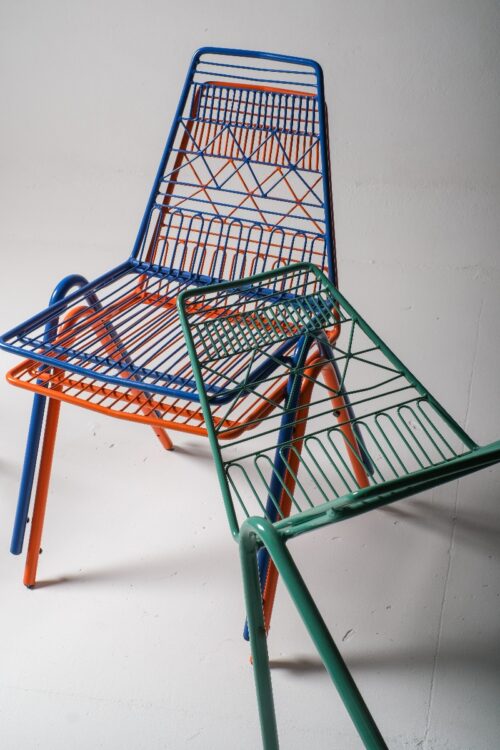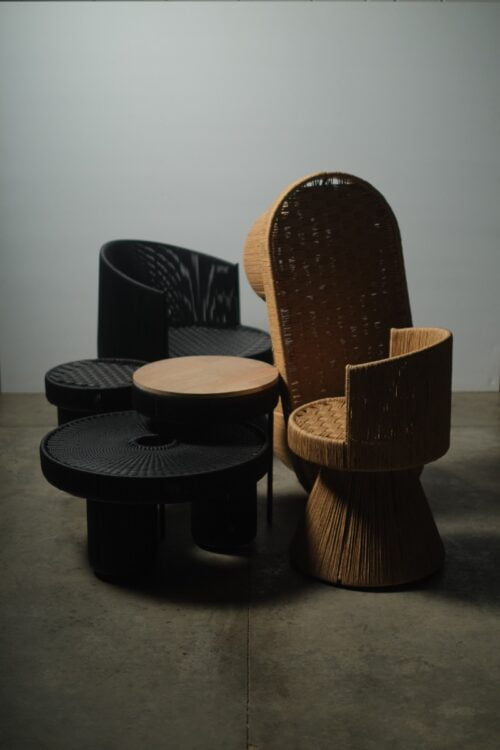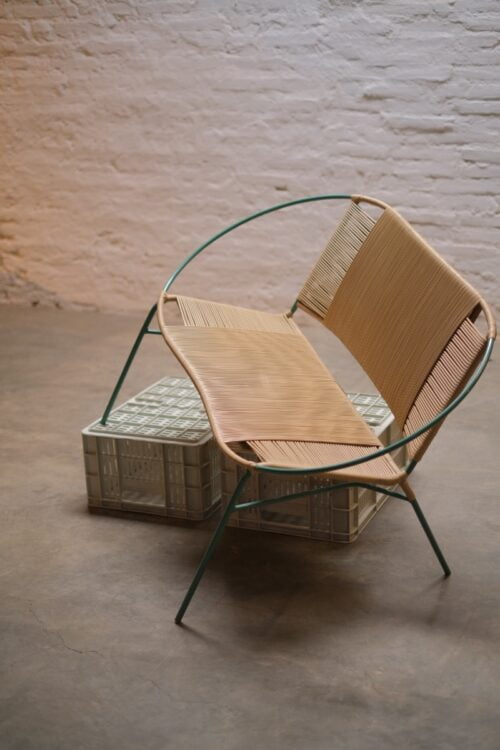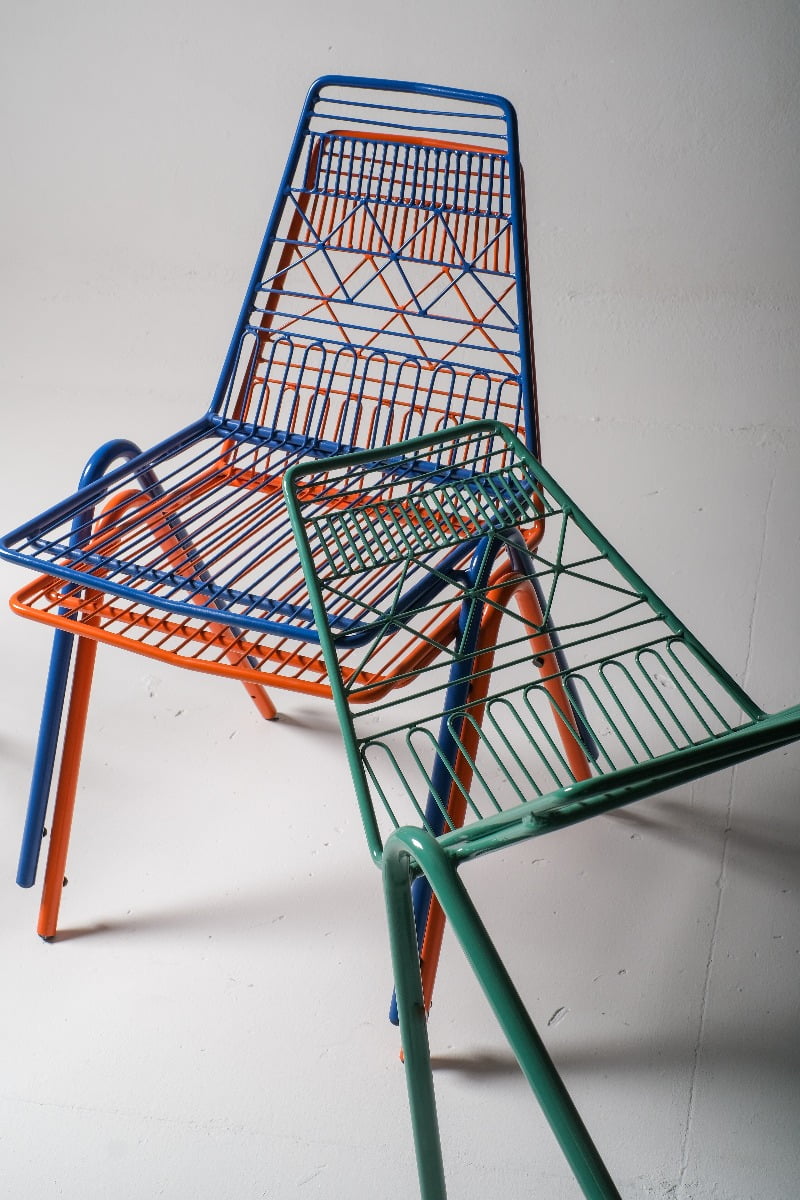We had been thinking of making a domino set for a while. Although it’s not a child’s game, it brings back a lot of memories from that time. My grandfather used to gather with a group on weekends, sometimes at his estate, Bellavista. We went along almost instinctively because the event would turn into a feast. We played almost instinctively as well, not really understanding tactics or strategy. We learned by watching.
Everyone wanted to play, but we only had two tables. We kids sat at one, and the grown-ups at the other. The domino tiles made a loud noise; they roared when shuffled and cracked when placed on the table—we kids could never make them sound as the adults did. There was music, snacks, stories, and jokes, and of course, no one could go without having sancocho for lunch. When we got tired of playing, we went horseback riding or for a ride in the mule-drawn cart. Some went to the river, and others stayed for a nap in the hammock. Later, everyone would return, as if summoned by some higher force, and with the tiles in motion, the game would start again.
The game was intriguing, it had an element of magic. I never quite knew if it was about counting or guessing, but when you can see the numbers—if you count correctly—you can almost know everything. It’s a mix of cunning, skill, and mathematics. It took me a few years to grasp the dynamics; to understand how to count the numbers and speak in a code where each tile has its sayings and each move has its names, learn to make decisions, and manage each turn well.
They say that dominoes were invented in China, but it’s not known for sure. I also read that it was popularized by Christian monks in Italy and that it was brought on some ship to the Caribbean, where it became an icon. In Cuba, dominoes are almost the national sport; it’s full of tricks, intricate games, and historic sayings, it’s an art form. Here in Santa Marta, they still play it outside the Cemetery, spending the evenings with shouts and cracking sounds, and with an old radio playing in the background; who knows how long they’ve been playing.
The corn was the double six.
The plain bun, the double zero.
The goat was the trap.
Doubles lay down.
If they hung you, you were lost,
And if you passed, it was to win.
That’s how we played dominoes at my grandfather’s farm.


